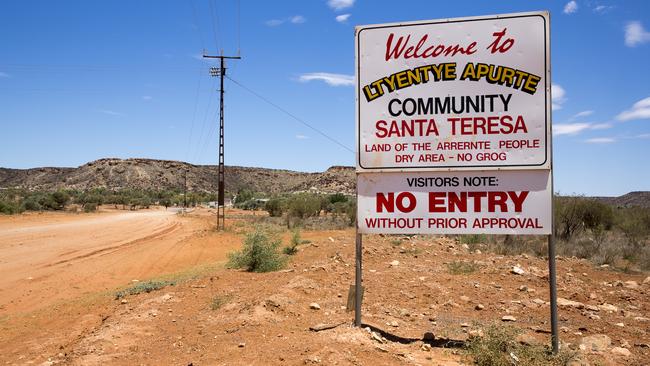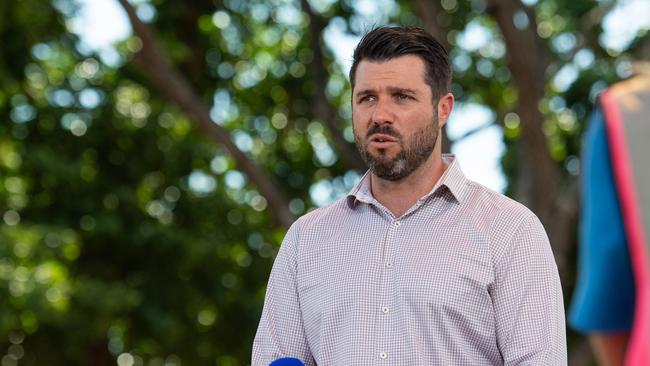Private consultants brought in to speed up possible reintroduction of alcohol to remote Aboriginal communities in the NT
The NT government will task private consultants with helping Aboriginal communities develop management plans for the reintroduction of grog, as the Alcohol Minister argues too much anti-social behaviour is landing in cities and towns.
Indigenous Affairs
Don't miss out on the headlines from Indigenous Affairs. Followed categories will be added to My News.
The Territory government will task private consultants with helping dry Aboriginal communities develop management plans for the reintroduction of grog, as Alcohol Minister Brent Potter says too much anti-social behaviour lands in urban centres when people travel to access drink.
The Department of Health and the Aboriginal Medical Services Alliance NT have issued a tender for a panel of consultants to engage with remote communities who want to participate in the development of Community Alcohol Plans.
Mr Potter said the government had “moved too slow in this space for too long” and introducing social clubs into communities could be “a great way” to build healthier relationships with alcohol.
“No one can walk through any of our CBDs and not acknowledge that we have people coming into town to access alcohol,” he told ABC Radio Alice Springs on Friday.
“That has to change because it is causing anti-social behaviour and domestic and family violence in our public places, and it’s not contributing to the lifestyle amenity that anyone wants.
“We have to give people a pathway to have a community club, as an example, because if we don’t do that we’re going to continue to have these prohibition issues and people coming into town accessing takeaway alcohol.”

All communities that fall under both alcohol protected areas and general restricted areas will be eligible to develop plans, including some town camps, and places such as Yuendumu, Galiwin’ku, and Papunya which have been dry zones for decades, predating Howard-era interventions.
Mr Potter said relevant ministers, the Liquor Commission and police would approve plans based on the wishes of the community, the context of the location, and other social, economic, and health impacts.
To date, 47 communities have registered their interest in developing alcohol plans, with 31 moving to the development stage.
Mr Potter said progress was “stagnating”, and it was appropriate to bring in private consultants so the government department responsible for assessing plans was not involved in their development.
“People have to learn to live with alcohol in their community, at the moment we’re not giving them a pathway to do that, which won’t resolve the long term problems we’ve seen out in the cities,” he said.
“We can’t not progress with this, it has taken too long.

“From my personal opinion as minister for alcohol policy, I wouldn’t be supporting anything that sees takeaway alcohol in the short term.
“The community club models work – it’s money reinvested back in the club, and it can be used as a mechanism to gain school attendance and get families engaged.
Mr Potter said he supported a model whereby health professionals, social workers, government agencies and police would be present when clubs were open, offering a chance to engage with the community and “start to change behaviours”.
Health Minister Selena Uibo said the government’s approach aimed to “move away from a paternalistic view of Aboriginal communities and alcohol”.
“If a community decides it wants to have alcohol, and access to alcohol, it can be done in a way that community drives and the legislation supports,” she said.
Ms Uibo said regardless of whether consultation was carried out by private tender or government, the focus had to be “capturing the community voice” to allow local decision making.





